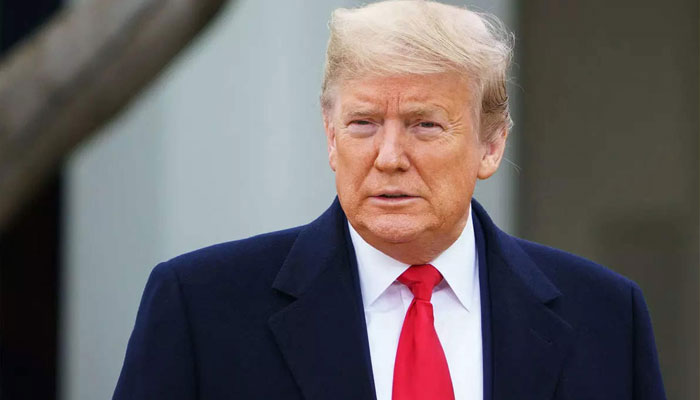America: the elephant in the room
US President-elect Donald Trump’s Special Presidential Envoy for Special Missions Richard Grenell has launched a flurry of tweets -- over a dozen in less than a week -- on Pakistan’s internal political landscape. Grenell’s actions suggest a calculated extension of American influence, effectively projecting soft power into Pakistan’s domestic affairs. The strategic intent behind this manoeuvre raises three critical questions: Is this an effort to shape the regional balance of power? Is this an effort to apply pressure on Islamabad? Is this an effort to secure broader geopolitical objectives?
On October 12, 2022, the classified National Security Strategy was submitted to Congress. Part III of the unclassified version outlines America’s global priorities, emphasising “Out-Competing China and Constraining Russia”, a clear acknowledgement of the strategic competition in the Indo-Pacific. Regarding Iran, the strategy accuses Tehran of engaging in hybrid warfare by interfering in its neighbours’ internal affairs, proliferating missiles and drones through proxy networks, and allegedly planning asymmetric operations against American interests. On Afghanistan, the strategy underscores a counterterrorism imperative: “We will ensure Afghanistan never again serves as a safe haven for terrorist attacks”.
Grenell’s tweets -- over a dozen in less than a week -- must be analysed within the context of America’s overarching strategic doctrine, which revolves around power projection through a calibrated blend of economic leverage, information warfare, and psychological operations. Grenell’s tweets -- over a dozen in less than a week -- should be seen as a form of non-kinetic engagement, employing diplomatic signaling -- albeit in a rather undiplomatic format -- as a tool of strategic communication.
The 23,097-worded National Security Strategy mentions China nine times, Iran seven times and Afghanistan four times. Coincidentally, Pakistan shares a border with China, Iran and Afghanistan. Grenell’s tweets -- over a dozen in less than a week -- are to shape the strategic environment in and around Pakistan. Grenell’s tweets -- over a dozen in less than a week -- seek to influence Islamabad’s future decision-making towards China, Iran and Afghanistan. Grenell’s tweets -- over a dozen in less than a week -- are a deliberate effort to shape the operational environment in and around Pakistan. Grenell’s tweets -- over a dozen in less than a week -- are designed to impact Islamabad’s decision-making calculus regarding its relations with China, Iran, and Afghanistan.
Pakistan’s Ministry of Foreign Affairs has made a serious strategic miscalculation by underestimating Grenell’s tweets -- over a dozen in less than a week. Fact 1: The geopolitical competition between the United States and China is escalating. Fact 2: For Pakistan, this escalation is reducing the scope for neutrality.
As the competition escalates, Pakistan will face mounting pressure to align with one of the two dominant powers, each manoeuvring to secure its position in the global balance of power. To avoid being entangled in a confrontation of competing spheres of influence or serving as a theatre for proxy operations, Pakistan must execute a clear and calculated strategic alignment, ensuring its national security interests remain uncompromised.
-
 Expert Reveals What Makes Investigations Hard In Search Of Savannah Guthrie Mother Nancy: 'Silent Witness'
Expert Reveals What Makes Investigations Hard In Search Of Savannah Guthrie Mother Nancy: 'Silent Witness' -
 'SNL's Strongly Reacts To BAFTA's Racial Slur With Tourette’s Sketch
'SNL's Strongly Reacts To BAFTA's Racial Slur With Tourette’s Sketch -
 Austin Shooting Leaves Multiple Dead, Dozens Injured
Austin Shooting Leaves Multiple Dead, Dozens Injured -
 Meghan Markle Friends Break Silence As Duchess Plan To Return To UK
Meghan Markle Friends Break Silence As Duchess Plan To Return To UK -
 Dua Lipa Stuns Everyone On And Off Stage At 2026 BRIT Awards
Dua Lipa Stuns Everyone On And Off Stage At 2026 BRIT Awards -
 2026’s Most Visited Websites Revealed: ChatGPT Overtakes Major Platforms
2026’s Most Visited Websites Revealed: ChatGPT Overtakes Major Platforms -
 Worst Cricket Moments That Shocked The Game
Worst Cricket Moments That Shocked The Game -
 Prince Harry, Meghan Markle Reach A Crossroads: ‘You Could Lose Everything’
Prince Harry, Meghan Markle Reach A Crossroads: ‘You Could Lose Everything’ -
 F1 Title Race: Who Will Win 2026 Drivers’ And Constructors’ Championships?
F1 Title Race: Who Will Win 2026 Drivers’ And Constructors’ Championships? -
 New Observatory Sends 800,000 Asteroid Alerts In One Night
New Observatory Sends 800,000 Asteroid Alerts In One Night -
 Cher’s Son Elijah Blue Allman Apprehended On Two Counts Of Assault At Elite Prep School
Cher’s Son Elijah Blue Allman Apprehended On Two Counts Of Assault At Elite Prep School -
 Beatrice, Eugenie Now Face Andrew, Sarah's ‘nightmares’: 'They're Hugely Conflicted'
Beatrice, Eugenie Now Face Andrew, Sarah's ‘nightmares’: 'They're Hugely Conflicted' -
 X Debuts Topic Filtering To Help Users Shape Their ‘For You’ Recommendations
X Debuts Topic Filtering To Help Users Shape Their ‘For You’ Recommendations -
 Scientists Built World's First Computer That Learns Like Human Brain
Scientists Built World's First Computer That Learns Like Human Brain -
 Robert Carradine’s Daughter Makes Bombshell Confession As Actor's Death Cause Confirmed
Robert Carradine’s Daughter Makes Bombshell Confession As Actor's Death Cause Confirmed -
 Beatrice, Eugenie Put On Blast: ‘Only Nitwits Wouldn’t See An Association With A Pedophile As Toxic’
Beatrice, Eugenie Put On Blast: ‘Only Nitwits Wouldn’t See An Association With A Pedophile As Toxic’




